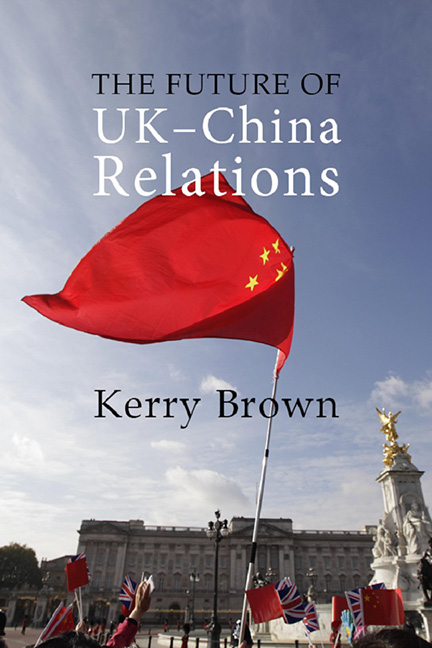Book contents
- Frontmatter
- Dedication
- Contents
- Dedication
- Preface
- Foreword by Tim Clissold
- Introduction
- 1 Tales from the golden age
- 2 What does China want? The case of the UK
- 3 Walk on by: what does Britain really want from China?
- 4 Who cares? The China circle in Britain
- 5 The good, the bad, and the Brexit: the UK and China outside the EU
- 6 The UK and China: scenarios for the coming decade
- Appendix: the UK’China balance sheet
- Further reading
- Notes
- Index
6 - The UK and China: scenarios for the coming decade
Published online by Cambridge University Press: 24 August 2023
- Frontmatter
- Dedication
- Contents
- Dedication
- Preface
- Foreword by Tim Clissold
- Introduction
- 1 Tales from the golden age
- 2 What does China want? The case of the UK
- 3 Walk on by: what does Britain really want from China?
- 4 Who cares? The China circle in Britain
- 5 The good, the bad, and the Brexit: the UK and China outside the EU
- 6 The UK and China: scenarios for the coming decade
- Appendix: the UK’China balance sheet
- Further reading
- Notes
- Index
Summary
Policy makers, whoever they work for, whether it is business, government, NGOs, love scenarios, and building up models for how things might work out. It is work I have done a lot of over the last few years, either from within the Foreign Office, or at Chatham House, and then as an academic in both Australia and the UK. Sometimes this work involves taking a group of inputs – economic, social or environmental ones – and then working out what happens when there is a crisis or a problem. Usually one goes from worst case to best case, with a tendency to map out the middle ground, and suggest that this is the likely direction of travel. And indeed, often that is what happens, in the short term at least, until something wholly unexpected happens. Like Mike Tyson, the boxer, once shrewdly pointed out, most strategies work fine in a fight until someone lands a fist in your face! Then it is back to the drawing board.
While in full flow, giving my “three tier” scenarios for UK–China relations some years back, one of the people I was addressing politely coughed and said that while it was all very interesting, to paraphrase: “We are not really in the business of fiction. It’s all very Goldilocks, isn’t it, setting out these good, bad, and ok options. A bit like tasting one porridge and finding it too hot, and the next and finding it too cold, and the third and saying that’s fine. Isn’t it better just to focus on structures about how things are now – at least there is evidence for that, and it lets you map out how the whole machine might go forward, and what’s possible and not possible.” That struck me as a wise suggestion. So in this chapter, having already identified the nature of the problem, I will simply map out the structure of the present, and then set parameters for what, in the new field of opportunities we call Brexit, is and isn’t possible. Once we know the limits, we can start meaningfully making plans.
- Type
- Chapter
- Information
- The Future of UK-China RelationsThe Search for a New Model, pp. 105 - 112Publisher: Agenda PublishingPrint publication year: 2019

